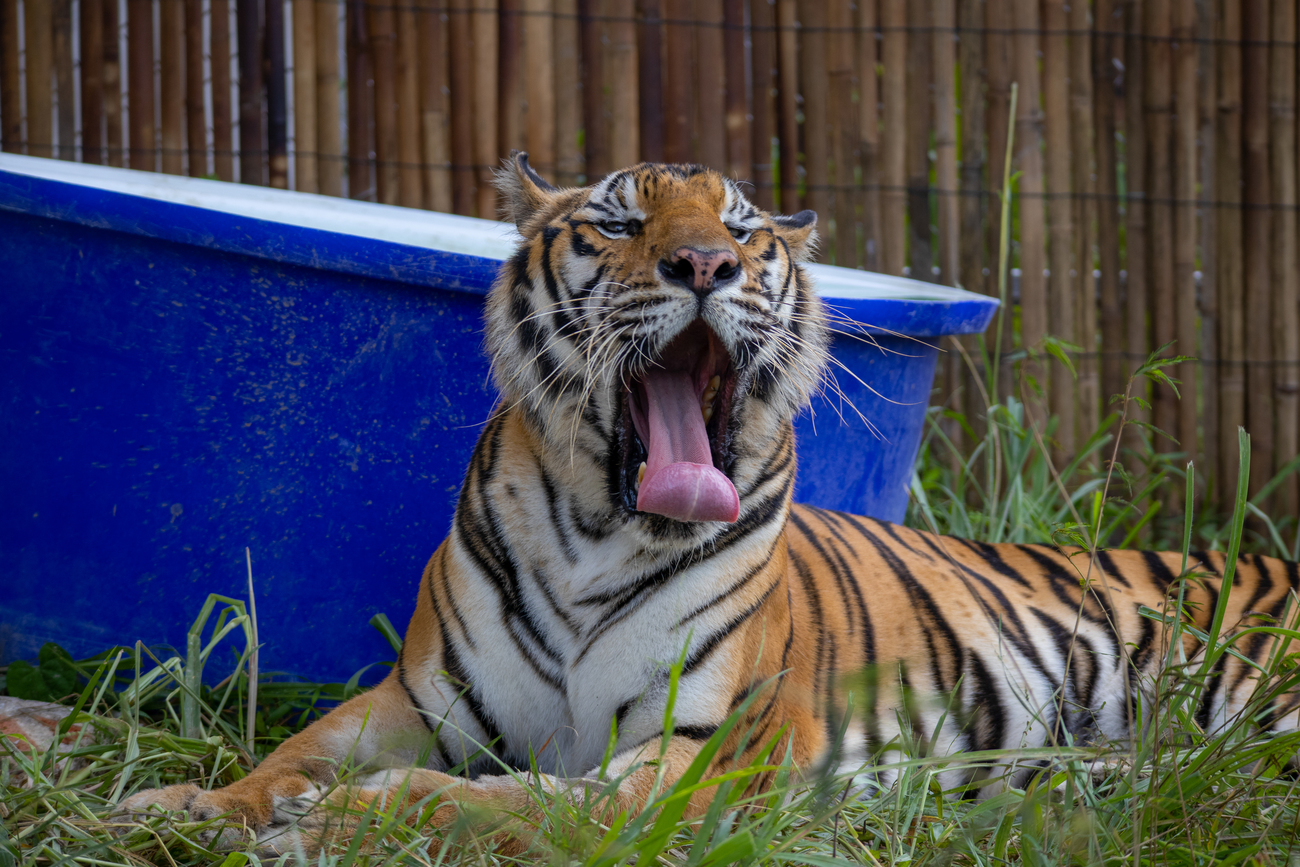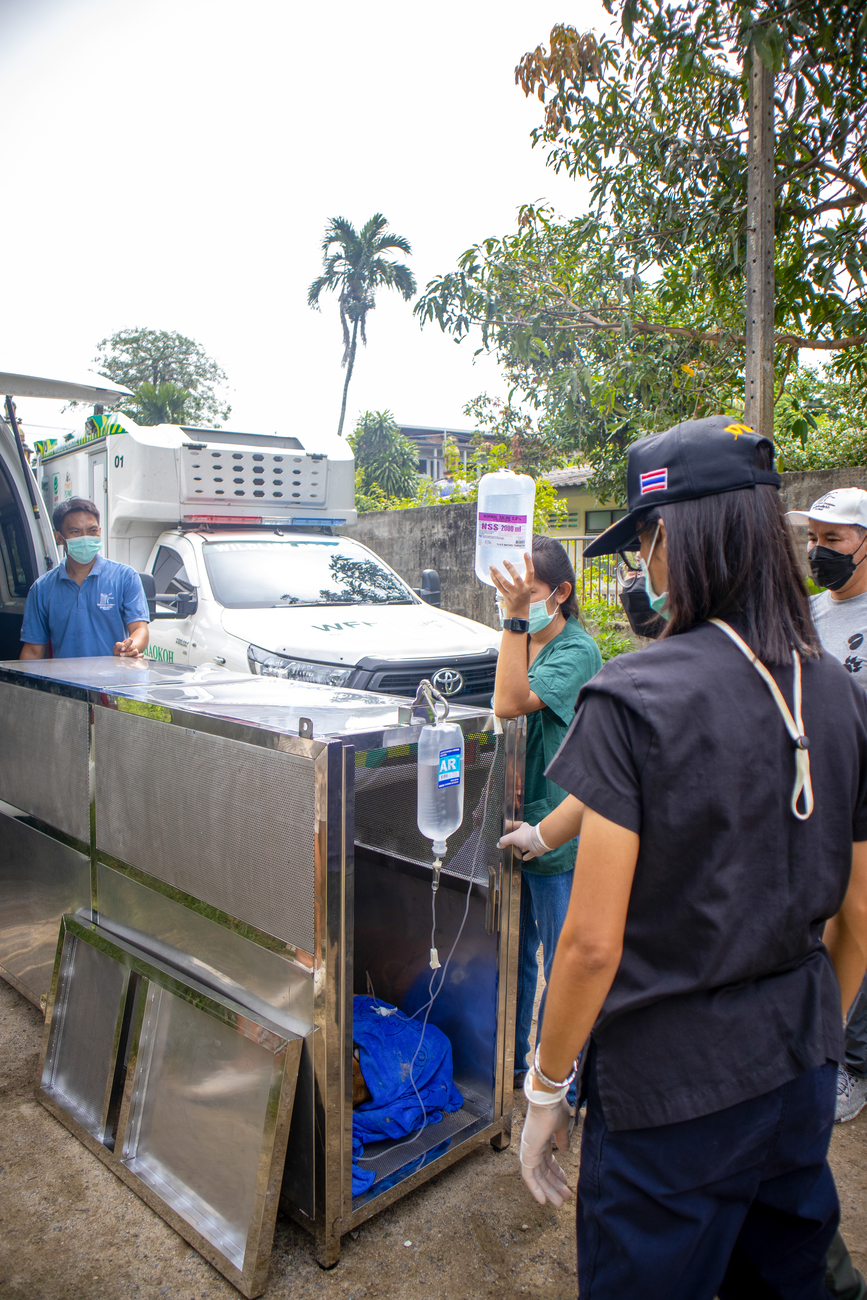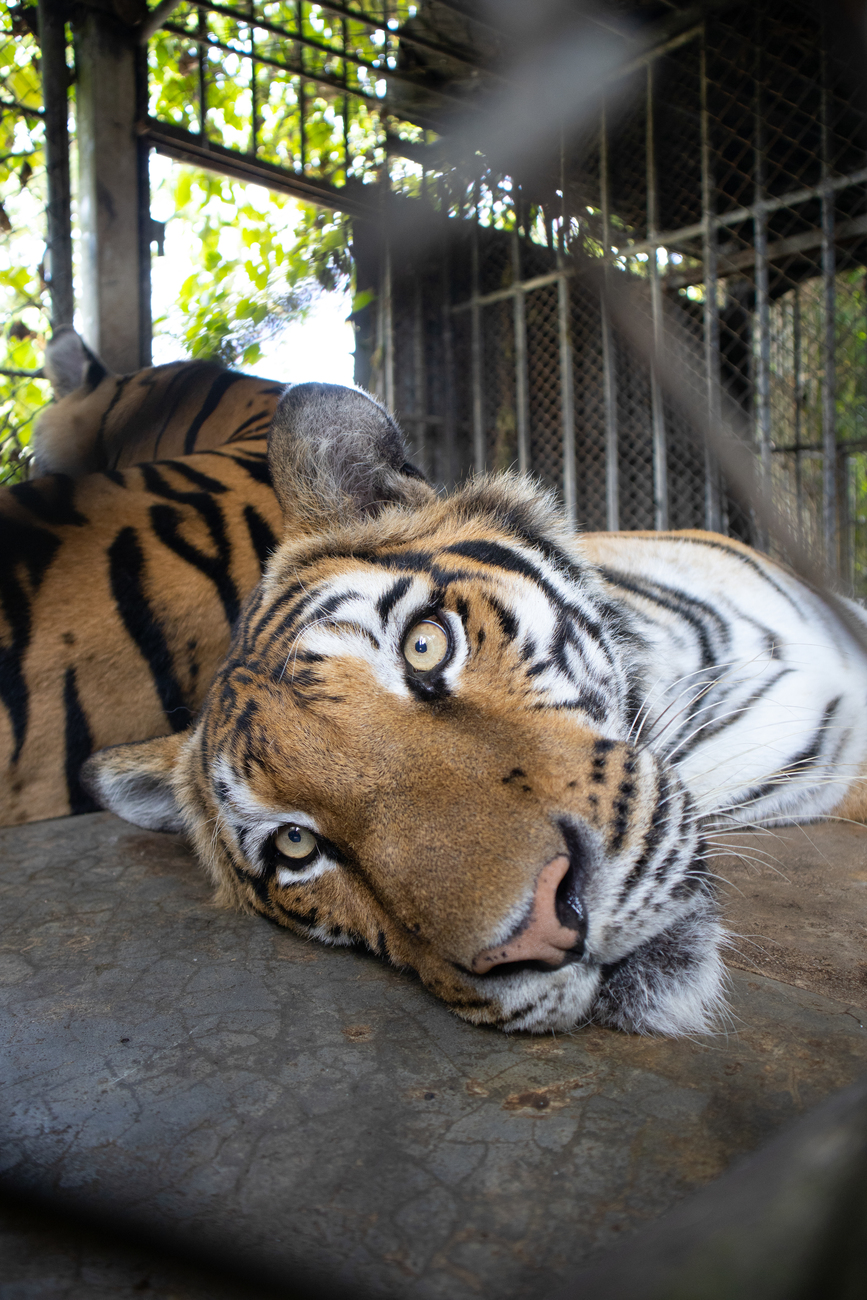The pursuit of happiness: Protecting animals to improve our well-being
To help animals, sometimes you need to look at humans, and vice versabears and tigers rescued from the Phuket Zoo
bears and tigers rescued from the Phuket Zoo

In early 2022 IFAW committed to help fund the rescue of 11 tigers and two bears kept in small concrete cages at the Phuket Zoo, which was closing for financial reasons. Between February and June the animals were transferred to the Wildlife Friends Foundation Thailand (WFFT) sanctuary based in Phetchaburi, Thailand, where they live in spacious naturalistic environments, and receive the daily care and veterinary attention they need from a dedicated team of specialists.
The male and female Bengal tigers rescued ranged in age from 2 to 19 years old. The two bears included Asiatic black bear Ginny (20+ years) and Malayan Sun bear Pookie (12+ years).

In 2019, Thailand strengthened their wildlife protection laws to ensure, in part, that wild animals confiscated by the government would receive adequate care, be returned to the wild if possible and if not, be placed in appropriate lifetime care. This was the first rescue that took place under the new law and the first time the authorities have handed over protected wild animals to a non-governmental organization. This was also the largest rescue in WFFT’s history.
While we’re overjoyed to see these animals finally receive the care and attention they so desperately needed, rescue efforts always entail some amount of risk. Sadly, two of the tigers—Pinthongta and Bua Pan—did not survive. Both tigers were at least 19 years old, which is quite old for a tiger. Pinthongta didn’t recover from anesthesia following necessary surgery to repair a painful and debilitating injury. Bua Pan simply did not recover after chemical immobilization that was required to move her to WFFT from the zoo. These losses are heartbreaking for everyone involved but are sometimes unavoidable when animals come to us in poor health after suffering for years in horrible conditions.
It’s the opportunity for success that drives our work forward, though, and today the nine tigers and two bears are doing well.

The tigers, many of whom were used as photos props and spent many hours chained to a platform for photos with tourists each day, are adapting surprisingly quickly to their new home. They now have access to large outdoor habitats with natural vegetation, ponds and plentiful enrichment. They have thrilled their caregivers as they have been exhibiting natural behaviors such as clawing, spraying, stalking and even swimming in the ponds.
Rambo, who is 19 years old and blind in one eye, spent many hours of his first day of freedom from concrete and bars relaxing in his natural lake. Rambo and Susu—who were cage-mates in the Phuket Zoo but were rescued at separate times over the four-month process—have been reunited and are interacting well. Maruay and Mee Mee were also cage-mates at the zoo, but were aggressive with each other. Since finding solace in their new habitat and enrichment activities at WFFT they have been able to be integrated again without any of the previous aggression.
Three of the tigers are quite elderly (15+ years) and we join the team at WFFT in savoring the ability to provide them with a true sanctuary to live out their final years.
The bears’ personalities have blossomed as well. Pookie and Ginny have transitioned from heartbreakingly small cages at the Phuket Zoo to now temporary enclosures that include hammocks, a bath, platforms, grass and other enrichment. Construction of new permanent habitats for the bears begins soon.
While a life in the wild is always our first choice for wild animals, these tigers and bears had that option removed from them with a lifetime in captivity. We at IFAW are encouraged to see governments prioritizing proper placement of confiscated wildlife to ensure the animals receive optimal care and so those that can’t be returned to the wild can spend the remainder of their lives in true sanctuaries like Wildlife Friends Foundation Thailand.
Related content
Our work can’t get done without you. Please give what you can to help animals thrive.